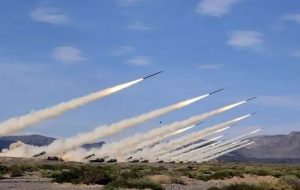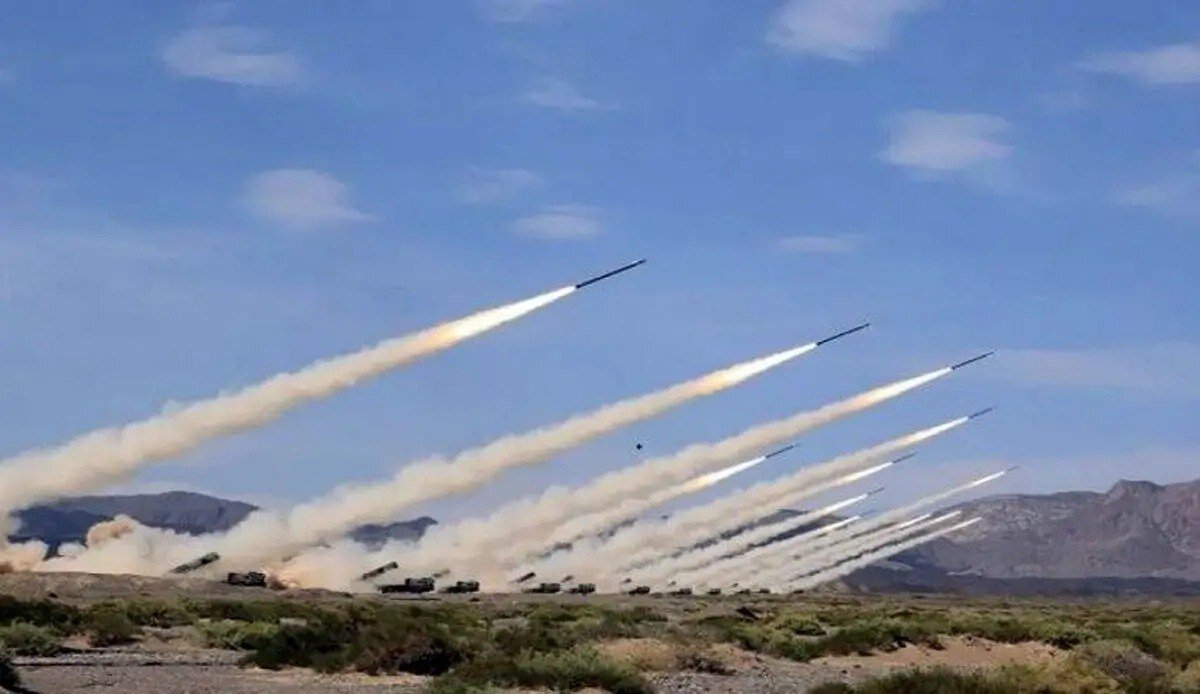Hezbollah strikes Tel Aviv with missiles
TEHRAN – Hezbollah has maintained its equation of striking Tel Aviv in response to Israeli airstrikes on the Lebanese capital Beirut. The regime waged indiscriminate attacks on residential buildings in central Beirut on Saturday, which killed at least 20 civilians. The Israeli military claimed the targets were linked to Hezbollah but provided no evidence and


TEHRAN – Hezbollah has maintained its equation of striking Tel Aviv in response to Israeli airstrikes on the Lebanese capital Beirut.
The regime waged indiscriminate attacks on residential buildings in central Beirut on Saturday, which killed at least 20 civilians.
The Israeli military claimed the targets were linked to Hezbollah but provided no evidence and Lebanese authorities as well as Hezbollah rejected the unsubstantiated claims.
According to experts, the Israeli military has been bombing civilian areas of Beirut in an effort to turn the people against the resistance movement, which has foiled the Israeli ground invasion and struck sensitive Israeli military bases.
Since the Israeli government escalated the war on Lebanon, Hezbollah has stuck to an equation that strikes on the Lebanese capital would be met with attacks on the Israeli capital.
On Sunday, the Lebanese resistance movement stayed true to its pledge. More than 200 rockets have been fired from Lebanon by the resistance forces, targeting many areas inside Israel by evading Israeli air defense systems.
Hezbollah launched scores of long-range surface-to-surface missiles as well as drones on the Israeli commercial hub.
Footage taken by Israelis documented the impacts of missile salvoes on Tel Aviv.
Hezbollah published a statement that read: “In support of our steadfast Palestinian people in the Gaza Strip, in backing their valiant and honorable resistance, and in defense of Lebanon and its people, and in response to the targeting of the capital Beirut and the massacres committed by the Israeli enemy against civilians, and within the framework of the Khaybar operations series, and in response to the call ‘Labbaik Ya Nasrallah,’ the fighters of the Islamic Resistance, in a complex operation on Sunday, November 24, targeted a military site in Tel Aviv city with a salvo of qualitative rockets and a swarm of assault drones, and the operation achieved its objectives.”
In a second complex operation Hezbollah “targeted the Palmachim base (a primary base for the Israeli Air Force, containing squadrons of unmanned aircraft, military helicopters, a military research center, and the Hetz missile and air defense system), located 140 kilometers away from the Lebanese-Palestinian borders, south of Tel Aviv, with a salvo of qualitative rockets, and the operation achieved its objectives.”
The Glilot base (headquarters of the Military Intelligence Unit 8200) on the outskirts of Tel Aviv was also targeted with a salvo of qualitative rockets, Hezbollah said.
Israeli media showed scenes from the sites of missile impacts in Petah Tikva on the outskirts of Tel Aviv. A number of casualties have been reported. About 40 cars were severely damaged, Israeli media reported.
Hebrew media also published footage of the aftermath of rockets falling in Nahariya and Haifa, where a 5-story building was at risk of collapsing.
Yona Yahav, the mayor of Haifa, has been cited as saying “the streets are empty, shops are closed, and the city is facing a severe economic crisis.”
Hezbollah also said that its fighters have, for the first time, launched an aerial operation with a swarm of assault drones on the Ashdod naval base 150 kilometers from the Lebanese-Palestinian border and struck their targets precisely.
This is the second time the Lebanese resistance has struck a target 150 kilometers away. Several days ago, Hezbollah announced it targeted an Israeli military base in Eilat.
The Hezbollah operations on Sunday also included the bombing of northern settlements in Israel, including Kiryat Shmona, on two occasions, targeting an Israeli drone and forcing it to leave Lebanese airspace as well as attacks on Israeli troops near the border town of Khiam. Sirens sounded in Acre and its surroundings as well as Safad.
Israeli analysts have warned against announcing the defeat of the Lebanese group as it evidently enjoys a strong missile stockpile and other military capabilities.
